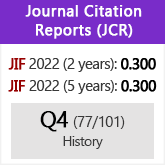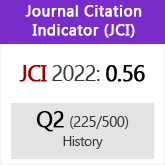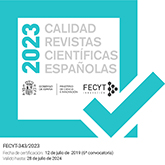Queer Literature in Spain: Pathways to Normalisation
DOI:
https://doi.org/10.3989/chdj.2013.010Keywords:
LGBT visibility, Queer humour, Queer rhetoric, Gay writing, Gay narrativeAbstract
More than any other, the idea of normalisation has provoked deep divisions within queer activism both at a philosophical and also at a political level. At the root of these divisions lies the irreconcilable divergence between an agenda for social change, which advocates the need for society to accept all sexual behaviours and identities as normal, and an approach of radical resistance against some social structures that can only offer a bourgeois and conformist normalisation. Literary fiction and homo-gay-queer themed cinema have explored these and other sides of the idea of normalisation and have thus contributed to the taking of decisive steps: from the poetics of transgression towards the poetics of celebration and social transformation. In this paper we examine two of these literary normalisation strategies: the use of humour and the proliferation of discursive perspectives both in the cinema and in narrative fiction during the last decades.
Downloads
References
Alviz, Jesús (1981) Calle Urano. Nuevo Sendero, Madrid.
Blackmore, Josiah and Hutcheson, Gregory S. (1999) Queer Iberia: Sexualities, Cultures, and Crossings from the Middle Ages to the Renaissance. Duke University Press, Durham.
Butler, Judith (1997) Excitable Speech: A Politics of the Performative. Routledge, New York.
Cardín, Alberto (1977) Detrás por delante. Iniciativas Editoriales, Barcelona. PMCid:PMC1006668
Cardín, Alberto (1981) Lo mejor es lo peor. Laertes, Barcelona.
Cela, Camilo José (1951) La Colmena. Emecé, Buenos Aires.
Cleminson, Richard and Vázquez García, Francisco (2007) “Los Invisibles”: A History of Male Homosexuality in Spain, 1850–1939. University of Wales Press, Cardiff.
Costa, María Dolores (1995) “Spanish Literature”. In The Gay and Lesbian Literary Heritage: A Reader’s Companion to the Writers and Their Works, from Antiquity to the Present, edited by Summers, Claude J. Holt, New York, pp. 667–672.
Edelman, Lee (2004) No Future: Queer Theory and the Death Drive. Duke University Press, Durham.
Edwards, Gwynne (1995) Indecent Exposures: Buñuel, Saura, Erice and Almódovar. Boyars, London.
Ellis, R. R. (1991–1992) “The Autobiographical Discourse of Antonio Roig”. Siglo XX / Twentieth Century, 9: 31–44.
Ellis, R. R. (1997) The Hispanic Homograph: Gay Self-Representation in Contemporary Spanish Autobiography. University of Illinois Press, Urbana.
Fernàndez, Lluís (1979) L’anarquista nu. Edicions 62, Barcelona.
Gala, Antonio (1985) Samarkanda. Ediciones MK, Madrid.
Goldman, Ruth (1996) “Who Is That Queer Queer? Exploring Norms around Sexuality, Race, and Class in Queer Theory”. In A Lesbian, Gay, Bisexual & Transgender Anthology, edited by Beemyn, Brett and Eliason, Mickey. New York University Press, New York, pp. 169–182.
Goytisolo, Juan (2000) Carajicomedia de Fray Bugeo Montesino y otros pájaros de vario plumaje y pluma. Seix Barral, Barcelona.
Herrero Brasas, Juan A. (1993) “La sociedad gay: una invisible minoría”. Claves, 36: 20–33.
Iglesia, Eloy de la (1978) El diputado. Fígaro Films, Producciones Zeta, UFESA.
Martínez-Expósito, Alfredo (1998) Los Escribas Furiosos: configuraciones homoeróticas en la narrativa española actual. University Press of the South, New Orleans.
Martínez-Expósito, Alfredo (2004) Escrituras torcidas: ensayos de crítica “queer”. Laertes, Barcelona.
Mendicutti, Eduardo (1987) Siete Contra Georgia. Tusquets, Barcelona.
Mendicutti, Eduardo (1995) “Cante Gregoriano”. Lateral, 12: 13.
Mendoza, Eduardo (1986) La ciudad de los prodigios. Seix Barral, Barcelona. PMCid:PMC268727
Munt, Sally (2008) Queer Attachments: The Cultural Politics of Shame. Ashgate, Aldershot and Burlington.
Norton, R. (1975) “Ganymede Raped: Gay Literature-The Critic as Censor”. In The Male Homosexual in Literature: A Bibliography, edited by Young, I. Scarecrow Press, Metuchen, pp. 193–205.
Painter, Dorothy S. (1980) “Lesbian Humor as a Normalization Device”. In Communication, Language and Sex, edited by Berryman, Cynthia L. and Eman, Virginia A. Newbury House, Massachusetts, pp. 132–48.
Picazo, M. (1977) Los claros motivos del deseo. José Frade Producciones Cinematográficas.
Pombo, Álvaro (1980) Los delitos insignificantes. Anagrama, Barcelona.
Pombo, Álvaro (1986) El hijo adoptivo. Anagrama, Barcelona.
Sanrune Carlos (1992) El gladiador de Chueca. Laertes, Barcelona.
Shklovsky, Victor (1965) “Art as Technique”. In Russian Formalist Criticism: Four Essays, translation and Introduction by Lemon, Lee T. and Reis, Marion J. University of Nebraska Press, Lincoln, pp. 3–24.
Smith, Paul Julian (1992) Laws of Desire: Questions of Homosexuality in Spanish Writing and Film, 1960–1990. Claredon Press, Oxford.
Todó, Lluis María (1994) El joc del mentider. Columna, Barcelona.
Vázquez Montalbán, Manuel (1987) Los alegres muchachos de Atzavara. Seix Barral, Barcelona.
Warner, Michael (1999) The Trouble with Normal: Sex, Politics and the Ethics of Queer Life. Free Press, New York.
White, M. (1994) Experience, Contradiction, Narrative and Imagination. Dulwich Centre Publications, Adelaide.
Published
How to Cite
Issue
Section
License
Copyright (c) 2013 Consejo Superior de Investigaciones Científicas (CSIC)

This work is licensed under a Creative Commons Attribution 4.0 International License.
© CSIC. Manuscripts published in both the printed and online versions of this Journal are the property of Consejo Superior de Investigaciones Científicas, and quoting this source is a requirement for any partial or full reproduction.All contents of this electronic edition, except where otherwise noted, are distributed under a “Creative Commons Attribution 4.0 International” (CC BY 4.0) License. You may read here the basic information and the legal text of the license. The indication of the CC BY 4.0 License must be expressly stated in this way when necessary.
Self-archiving in repositories, personal webpages or similar, of any version other than the published by the Editor, is not allowed.

















